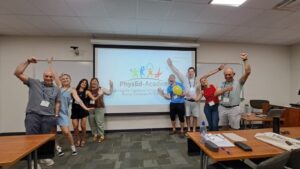At this year’s AIESEP International Conference 2025 (University of South Florida, USA), the PhysEd-Academy project brought together an international panel of scholars to lead a symposium titled “Exploring the ‘Signature’ of Signature Pedagogies Across European PETE Programs.” This session offered a timely and critical investigation into how signature pedagogies in Physical Education Teacher Education (PETE) are enacted, adapted, and experienced across diverse European contexts.
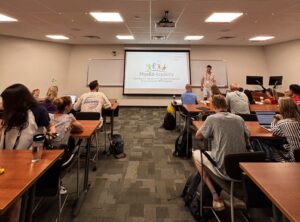
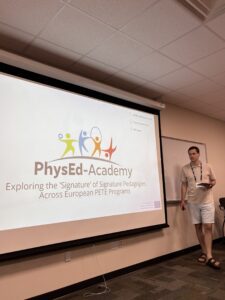
Three key ‘signature pedagogies’ have emerged as cornerstones of PETE (see our blogpost on signature pedagogies to learn more):
(Auto)biographical pedagogies
Experiential pedagogies
Pedagogies of professional learning
As the symposium emphasized, the way these pedagogies are interpreted and implemented is highly context-dependent. The project sought to understand not only what is shared across PETE programs, but also how pedagogical practices are uniquely shaped by local cultures, institutions, and individuals.
🇪🇸 Spain
“Signature Pedagogies in Physical Education Teacher Education: A Case in Spain”
Javier Fernandez-Rio, Pablo Saiz-González, Jacob Sierra-Díaz – Universidad de Oviedo
🇮🇪 Ireland
Session 212 – “Developing (Auto)biographical Pedagogies and Pedagogies of Professional Learning to Teach About and Through Social Justice in Irish PETE”
Marina Castro-García (Norwegian School of Sport Sciences), Carmen Barquero-Ruiz & Antonio Calderón (University of Limerick)
🇹🇷 Türkiye
Session 219 – “Inclusive Education Through Signature Pedagogies: Exploring (Auto)biographical Pedagogies and Pedagogies of Professional Learning in Turkish PETE”
Deniz Hunuk, Figen Altay, Eslem Gökçek, Gıyasettin Demirhan – Hacettepe University
🇸🇪 Sweden
Session 294 – “The ‘Signatures’ of an Integrated Movement Practice Pedagogy in Swedish PETE”
Daniel Roe, Eva Fors, Mikael Quennerstedt, Karin Redelius, Anders Frisk – Swedish School of Sport and Health Sciences
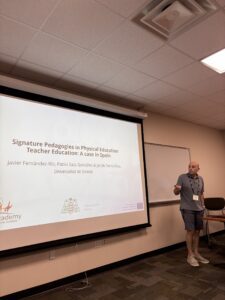

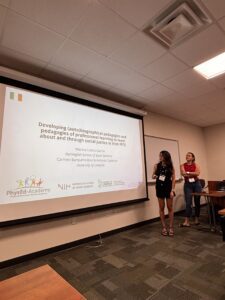

As PETE continues to evolve across Europe, the insights from this symposium reinforce the need for ongoing dialogue, comparative analysis, and collaborative learning. Rather than seeking a one-size-fits-all approach, the goal is to cultivate a shared pedagogical language that is flexible enough to honor diversity while strong enough to sustain coherence and quality in teacher education.
The PhysEd Academy will continue to share learnings from this project in future publications and events. We invite educators, researchers, and students to join us in exploring what signature pedagogies mean in your context – and how they can shape a better future for physical education.
Interested in learning more or getting involved? Reach out to the PhysEd Academy team!
